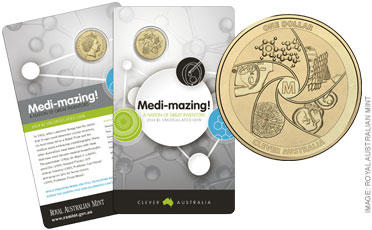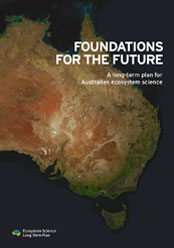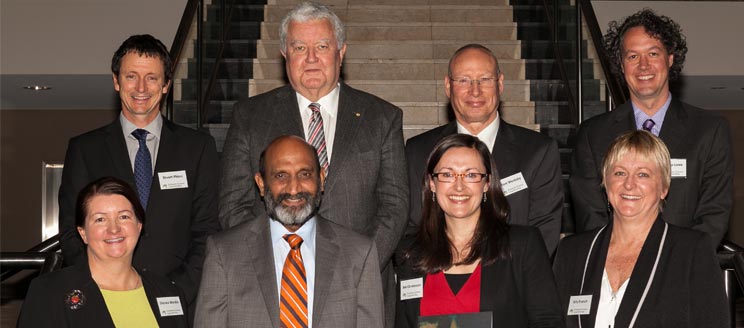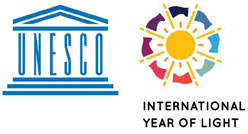On this page:
The plans will…identify the future needs of each discipline and outline priorities for investment over the next 10 years.
The Academy will receive nearly $500,000 to develop 10-year plans for chemistry, agricultural science and the Earth sciences through the Australian Research Council’s Learned Academies Special Projects Scheme.
Education Minister Christopher Pyne recently announced the Government funding, saying that all three areas are fundamental to the Australian economy—particularly relating to manufacturing, agricultural productivity and minerals exploration.
Developed by the Academy’s national committees for science, the plans will seek input from across government, industry, academia and the education sector to identify the future needs of each discipline and outline priorities for investment over the next 10 years.
They will make recommendations about research directions, infrastructure, workforce needs, career structure and educational reform.
The National Committee for Astronomy’s pioneering decadal plan, New Horizons, has been strongly influential in securing Australia’s involvement in building major international research infrastructure.
Australia’s bid to host the world’s largest radio telescope—the Square Kilometre Array (SKA)—was a recommendation of the 2006–2015 decadal plan. The SKA will be hosted by South Africa, Australia and New Zealand and is scheduled to begin observing the sky in 2020.
Past decadal plans for physics, geosciences, Earth system science and space science have also been instrumental in shaping their disciplines.
Chair: Dr Dana Bergstrom
Dr Dana Bergstrom is leading efforts to establish Pure Antarctic. This initiative aims to show the beauty and fragility of Antarctica and how interconnected it is to the rest of world, showcase cutting-edge Antarctic science and inspire and educate the next generation. See pureantarctic.com.
Dr Bergstrom was the opening keynote speaker at the Scientific Committee on Antarctic Research’s Open Science Conference held in Auckland from 22 August to 3 September.
More information on the National Committee for Antarctic Research
Chair: Professor Stuart Wyithe
The development of a second decadal plan for Astronomy is well underway. Approximately 250 students, researchers, senior astronomers and academics, including Academy fellows, attended a decadal plan workshop on 22 July held during the Astronomical Society of Australia conference at Macquarie University. The working group chairs presented the results of community consultations and submissions, and discussion was invited. The plan is progressing well, and the reports from the working groups were provided to the committee in August. The committee met after the workshop to discuss progress with the plan and details for the next stages.
Chair: Professor Edna Hardeman
Australian voting delegates nominated by the National Committee for Biomedical Sciences have attended general assemblies of several biomedical scientific unions in recent months:
More information on the National Committee for Biomedical Sciences
Chair: Emeritus Professor Pat Michie
The National Committee for Brain and Mind is focused on the development of a website which will be a permanent repository of Brain and Mind research and resources in Australia. Emeritus Professor Michie sought feedback from the Australasian Cognitive Neuroscience Society on the committee’s goals over the next few years and issues of concern to the society.
More information on the National Committee for Brain and Mind
Chair: Professor Paul Mulvaney FAA
The National Committee for Chemistry has commenced work on its first decadal plan for chemistry. It has identified a clear challenge in strengthening links with industry and secondary education. The decadal plan working group welcomes input from anyone interested in chemistry from an educational, research, industry or policy viewpoint.
The plan will involve collaboration with the Royal Australian Chemistry Institute (RACI) and CSIRO. Consultations began with a workshop for science teachers, and public meetings are being held throughout Australia from July to December. Online surveys, electronic submissions, telephone surveys, online forums and business breakfasts are all part of the consultation process.
See all past and upcoming consultation meetings
The development of the plan is being funded by the Australian Research Council under the Learned Academies Special Projects Scheme.
More information on the National Committee for Chemistry

Chair: Professor Mitchell Guss
As part of the United Nations International Year of Crystallography celebrations in Australia, the Royal Australian Mint has issued a commemorative coin to highlight great minds that have contributed to medical inventions, specifically mentioning the Nobel prize-winning crystallographer Lawrence Bragg.
The travelling crystallography photo exhibition will be on display at the Royal Society of Victoria, Melbourne until 10 September, after which it will travel to Perth and Adelaide before making its way back to Questacon where it will remain until early January.
The Academy’s 2015 annual science symposium on 28 May is the final event in the celebrations, and several sponsorship opportunities are available. Make a sponsorship enquiry
More information on the National Committee for Crystallography
Chair: Professor Jane Hunter
The National Committee for Data in Science is focusing on the preparation of a science policy paper, Realising an Open Data Culture in Australian Science. The aim of the paper is to identify the main barriers to sharing research data within Australian science and to identify possible solutions.
More information on the National Committee for Data in Science

Chair: Dr Tas van Ommen
The National Committee for Earth System Science is planning for the Third Australian Earth System Outlook Conference, Cities in Future Earth, to be held at the Shine Dome from 8 to 9 December 2014. The committee is also drafting a prospectus for the production of a textbook, as well as the development of a website for Australian Earth system science.
More information on the National Committee for Earth System Science
Chair: Professor Mark Westoby FAA

The national Ecosystem Science Long Term Plan was launched on 15 July in Canberra. Chief Scientist Professor Ian Chubb and Academy Vice-President Professor Chennupati Jagadish FAA FTSE were among the speakers. The plan was developed jointly by the Terrestrial Ecosystem Research Network, the Ecological Society of Australia and the Academy. It was informed by extensive consultation with researchers.
Ecosystem researchers expressed six key themes or concerns:
The plan’s steering committee will seek to establish an Ecosystem Science Council and to translate these key concerns into step-by-step action plans. The plan’s website is the hub through which people can participate or stay in touch with progress.
More information on the National Committee for Ecology, Evolution and Conservation

Chair: Professor Hans Bachor FAA
The chair of the National Committee for Physics, Professor Hans Bachor, met with representatives of the Australasian College of Physical Scientists and Engineers in Medicine and the Australian Institute of Physics to discuss collaborative efforts to raise the profile of medical physics. A particular concern is a lack of trained medial physicists which has resulted in failure to fill many job vacancies.

UNESCO has declared 2015 as the International Year of Light. Committee member Professor Ken Baldwin is leading the steering committee organising activities to celebrate this event in Australia. More information on the International Year of Light may be found at www.light2015.org.
More information on the National Committee for Physics
Chair: Professor Russell Boyce
The National Committee for Space and Radio Science will be the undertaking of a mid-term review of the 2010–2019 Decadal plan for Australian space science. The committee will work with the space and radio science communities update this important plan.
Committee member Professor Iver Cairns from the University of Sydney represented Australia at the 40th Committee on Space Research Scientific Assembly, 4-10 August in Moscow.
More information on the National Committee for Space and Radio Science
© 2026 Australian Academy of Science